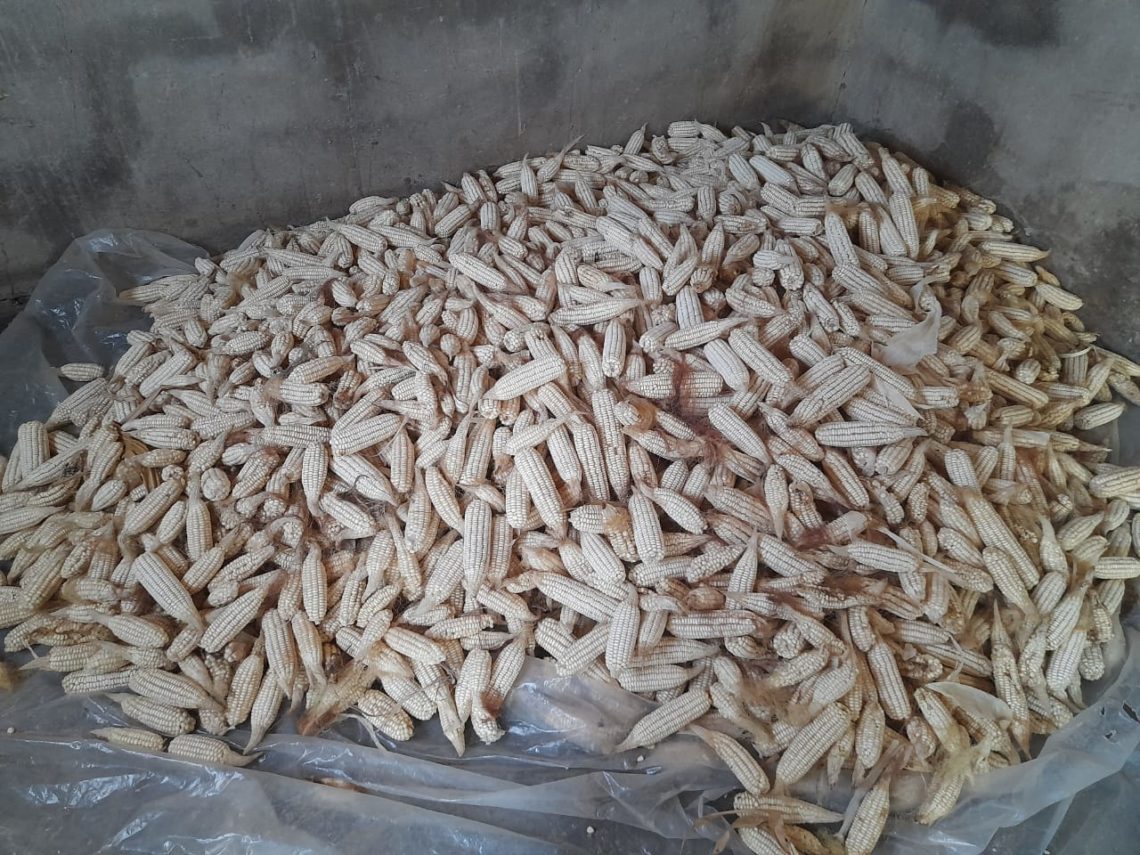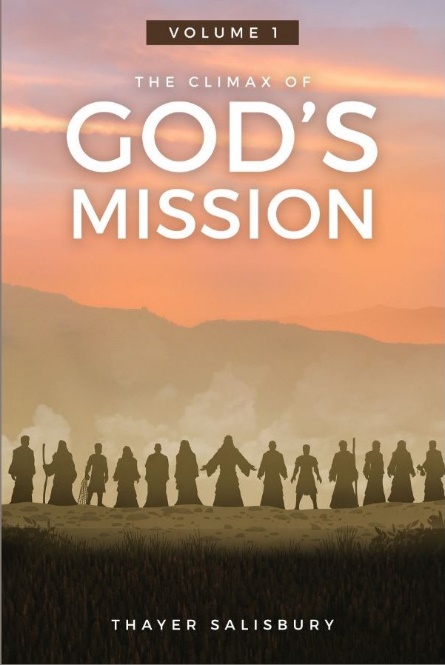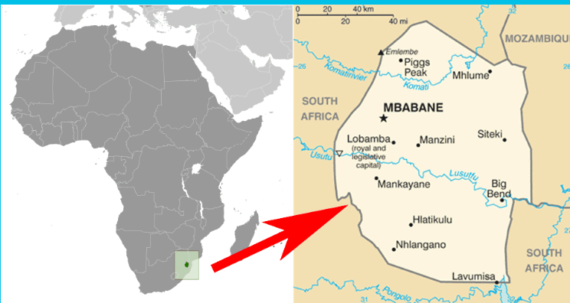Our daily worship consists of a brief reading after breakfast and then two songs from The Praise Hymnal. Just before bedtime we have another brief reading and then two songs from Praise for the Lord. We do not choose the songs. We just sing the next two songs in the book – if we know them. The only exception to this pattern is on Sunday evening. Some of our friends join us for worship on Sunday evening. That is one time we take song requests.
A few weeks ago, someone requested “One Step at a Time.” Then it came up for us in our daily worship a few days later. It was requested again this past Sunday. That song is not frequently sung. But it certainly fits our lives. Our relationship with the Lord is not a 100-metre sprint, but a long trudge, a marathon walking race. Progress is rarely dramatic, but hopefully it is steady.
The first harvest
The Timbutini agriculture project brought in the first harvest. Due to drought, the pumpkins failed. The maize (corn) harvest was not particularly impressive; but something was gained from land that had been producing nothing. And lessons are being learned.





Three of our members had a chance to discuss the agriculture project (via a Zoom meeting) with Dr John Giesemann, a recently retired extension professor from Mississippi State University. John is a member of the Starkville Church of Christ. He gave advice on how to get the most out of the land. Agricultural methods here are often poorly thought out. I wish that we could bring someone in for longer training. A two-hour Zoom meeting is hardly adequate for changing methods that people have known all their lives. But the project is progressing, one step at a time.
Much to my surprise, the church was offered the chance to purchase the land so that any improvement we make will definitely be ours to keep. Even more to my surprise, the church jumped at the chance. In their poverty, they could not purchase the whole parcel; but they plan to purchase two hectares (almost 5 acres). The money for that purchase is not coming from what you have donated. Instead, money the church had been saving to improve our building will be used to buy the land. The church leaders reasoned that this opportunity to purchase land will not last – it is very unusual. The addition of a ceiling, flooring, and a classroom can wait. We have a roof over our heads, four walls, windows, and doors. With this we will be content.
The fifth volume
March also brought the publication of another in the African Textbook series. The Climax of God’s Mission is a study of the Synoptic Gospels (Matthew, Mark, and Luke). This volume covers from the birth of Jesus to the confession of Peter (Mt 16, Mk 8, Lk 9). The second volume (which will take another year or so) will carry on from the transfiguration to the resurrection and ascension.

We are painfully aware of inadequacies in this, and in all our books. Rome was not built in a day. Poor agriculture methods are not corrected with a Zoom meeting. Suitable textbooks are not developed overnight. But we are moving forward, one step at a time.
Melokhuhle
Earlier we told you about an orphan child who was taken in by Elijah and Kate Malaza, founding members at Timbutini. Melokhuhle was the son of a young woman distantly related to the Malazas. They had helped raise her, but she had been living with her mother at the time of her death. She was not able to care well for Melo (neither was the grandmother) and he faced some very serious trials which no child should ever face. The Malazas worked to get him into their home and were eventually successful. When he first arrived, he was a very serious child who rarely smiled.

The Malazas enrolled Melo in the government school for grade one. He proved to be a very bright student and was at the top of his class. However, the school was insisting that he was too small to move to grade two and should be forced to repeat grade one! We were all concerned that he would be discouraged by this (not to mention how bored he would be).
The Malazas searched for a private school that would allow him to continue with grade two and would be a better environment for him. With your help, we have been paying the school fees. He is thriving there and enjoying it. He told Kate that he was determined to be at the head of his class. He is a diligent student. We are so happy to report that he has become a happy, well-adjusted child. He greets us in English, which he is learning in his new school. He smiles all the time. God has been so good to him and to us through him.
“Federal Benefits Unit”
There is not a Social Security office in Eswatini (or anywhere in Africa). If we want to know our status with the Social Security Administration, we must contact the “Federal Benefits Unit” at the American embassy in London, England. It is not easy. But after several failed attempts we did get to talk with them recently. We were pleased to learn that, beginning in August of 2027, we will be able to collect benefits that should be almost adequate to keep us in this work for as long as our health holds out.
We know that some of you have had to cut your support. But we pray that enough will be able to continue to keep us going until the middle of 2027. So far, it is looking very hopeful. At that point we will be able to manage with just a small supplement to our Social Security benefits.
African Textbook Ministry, %Church of Christ, 5130 Flanders Road, Toledo, OH 43623

